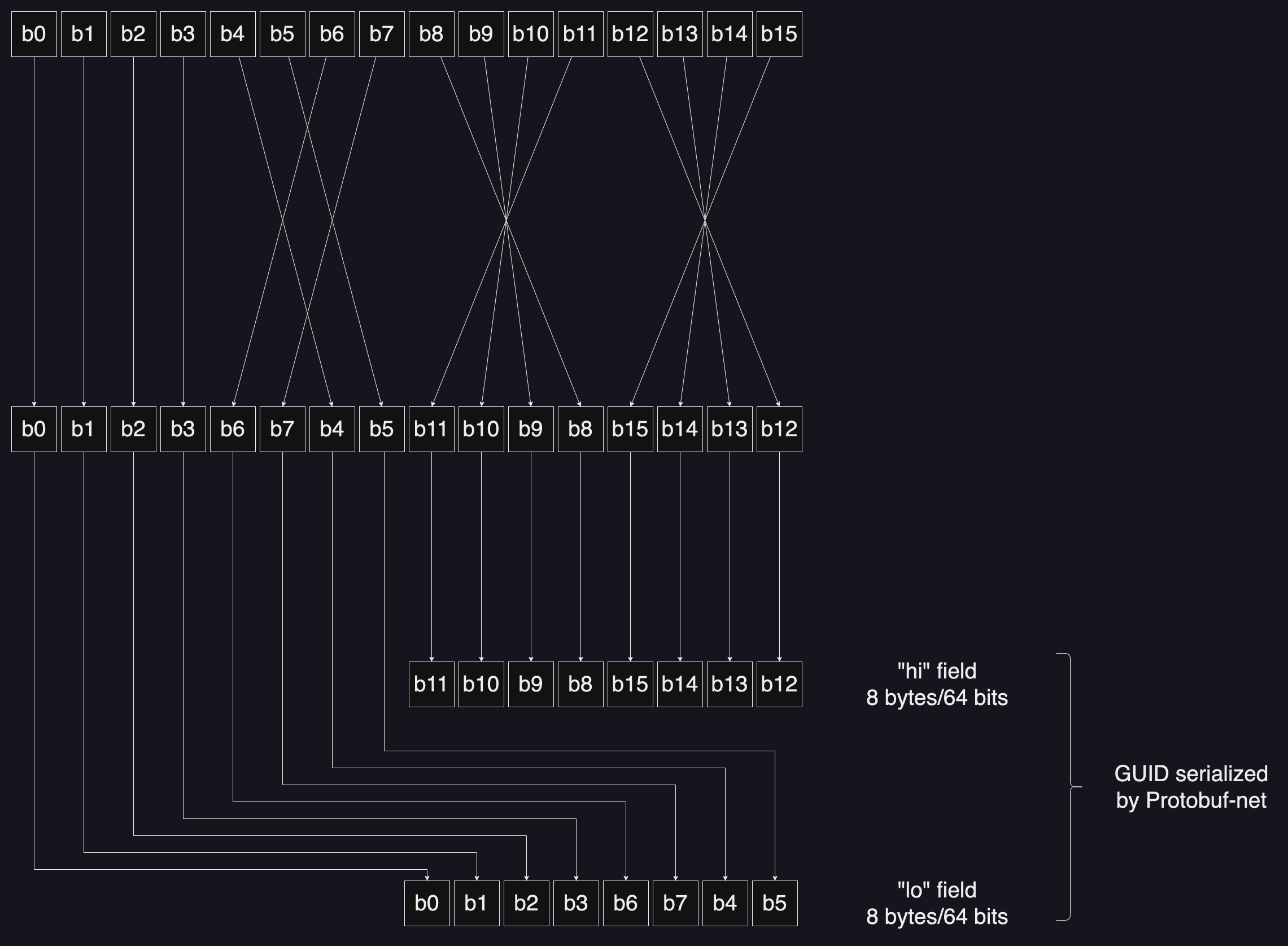A helper library that allows exchanging Protobuf-serialized GUIDs between a Node application and a .NET application that uses Protobuf-net.
Basically the way that a .NET GUID is Protobuf-serialized is insane.The bytes of a GUID are produces with no recognizable endianness.
On top of that, those 16 bytes are sent over the wire as an object with two properties, called lo and hi, each being a 64 bit long.
Here's a graphical representation of how protobuf-net serializes a GUID

Use the toProtobufNetGuid method to package your GUID string into the form of that aforementioned object.
const protobufNetGuid: ProtobufNetGuid = toProtobufNetGuid('00112233-4455-6677-8899-AABBCCDDEEFF');Then just serialize it with protobufjs and send it over the wire.
Use fromProtobufNetGuid to convert such an object back into a GUID string.
const recoveredGuid: string = fromProtobufNetGuid(protobufNetGuid);I warmly recommend having a look at the handful of tests. There's even one with a full roundtrip to a .NET application.
Let's say you have to send a dto from your NodeJs application to your .NET application. The dto has a field containing a GUID. Your code might look like this
const expectedGuid = '00112233-4455-6677-8899-AABBCCDDEEFF';
const dto: Dto = {
Id: toProtobufNetGuid(expectedGuid),
};
const root = await load(path.join(__dirname, 'types.proto'));
const dtoMessageType = root.lookupType('Dto');
const errorMsg = dtoMessageType.verify(dto);
expect(errorMsg).toBeNull();
const dtoMessage = dtoMessageType.create(dto);
const dtoMessageUint8Array = dtoMessageType.encode(dtoMessage).finish();
const base64String = Buffer.from(dtoMessageUint8Array).toString('base64');
const command = `dotnet run --force --project ./src/__tests__/tester/Tester.CLI/Tester.CLI.csproj --byteArray ${base64String}`;
const stdOut = execSync(command).toString();
const decodedDto = dtoMessageType.decode(Buffer.from(stdOut, 'base64')) as unknown as Dto;
const decodedGuid = fromProtobufNetGuid(decodedDto.Id);The relevant proto file looks like this
syntax = "proto3";
message Guid {
fixed64 lo = 1;
fixed64 hi = 2;
}
message Dto {
Guid Id = 1;
}If you're setting up a new .NET project with protobuf-net, please read this https://protobuf-net.github.io/protobuf-net/compatibilitylevel.html
Buy me a coffee if the library helped you! As always, you can have fun with my code. MIT baby!
